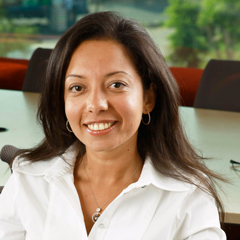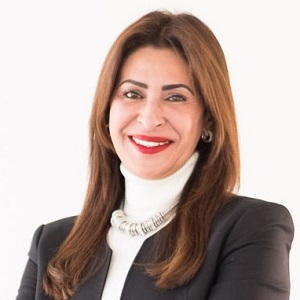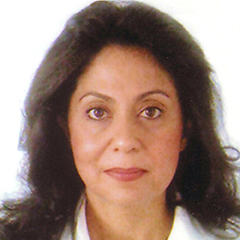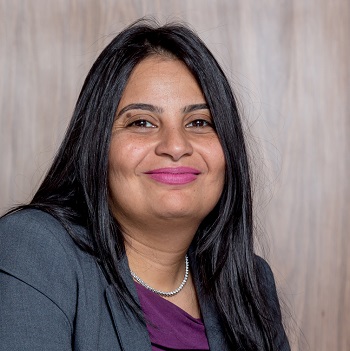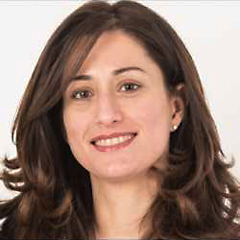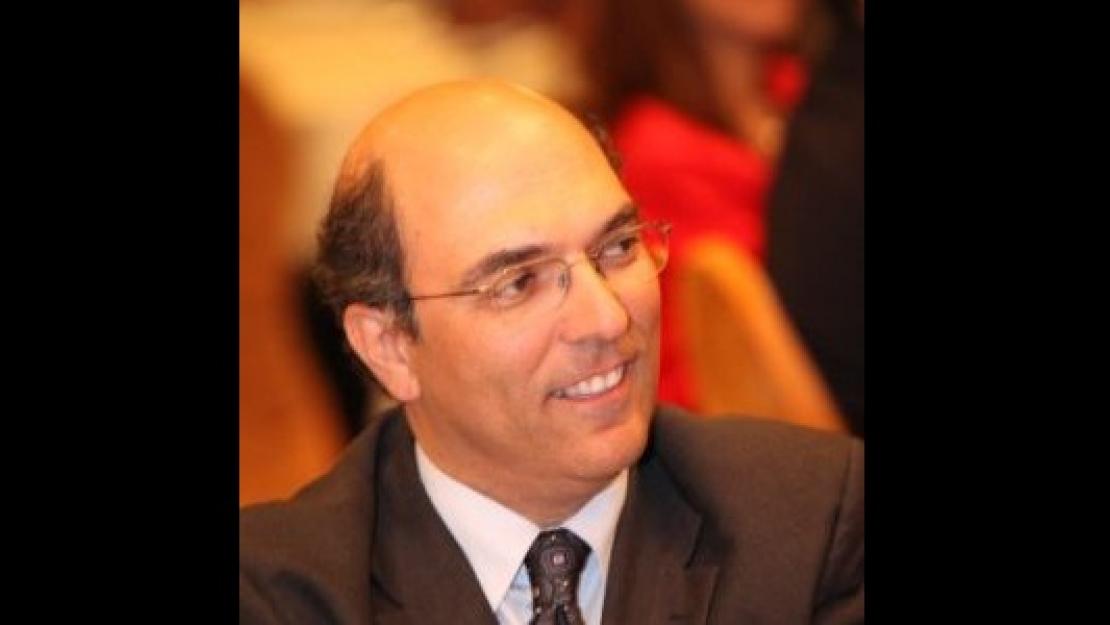Back to Business with Dean Sherif Kamel
Sherif Kamel ‘88, ‘90, ‘13 recalls with amusement the time a faculty member approached him to ask him what he was doing sitting in her class.
“I’m a student,” he said. Kamel was dean of the School of Business, and at the same time, was on his way to receiving his third degree from AUC: a Master of Arts in Islamic art and architecture. Kamel had received his bachelor’s and master’s degrees in business administration years before, but this degree took a total of nine years to complete.
“The thing is, whatever I do, I get extremely passionate about,” said Kamel. “People finish that degree in one year. I finished it in nine years because of one thing: If I’m going to do it, given all my professional and academic obligations and commitments, I’m going to attend every single class.”
Kamel has brought that same level of passion and energy to his return as dean of the School of Business, which he assumed in January 2018.
"In my mind, I never left AUC," said Kamel, reflecting on the 35-year journey with AUC that includes three degrees, two decades of teaching, multiple administrative positions including the founding deanship of the School of Business and, finally, his return as dean of the School of Business.
Returning to the Roots
When Kamel first arrived at AUC back in 1983, the School of Business did not exist. That changed when he transitioned from associate dean of executive education of the School of Business, Economics and Communication to founding dean of the School of Business back in 2009.
In 2014, Kamel had accumulated about two years of sabbatical and decided to take a break to spend time with his family, who had moved to Canada. He had planned to return to AUC as a faculty member, but a year later, Kamel received a call with a job offer to come back as vice president for information management, during which he served as part of the University administration for one year. This was followed by another year as senior adviser to the University president for strategic planning, working closely with different constituents across campus in formulating the University's centennial strategy 2019-2022. Upon finishing this assignment, he received another call to return to the School of Business as dean.
At first, Kamel was hesitant.
"My immediate reaction was, 'I've never seen part two of a movie that is better than part one — except The Godfather,'" he joked.
Kamel decided that if he were going to take the deanship, he would need a plan of how he can take the school to the “next level.”
Looking back at what the school has achieved so far, Kamel said he is most proud of the school landing the triple crown accreditation. But now, he said, “it is time to think beyond accreditation."
Since first receiving the triple crown accreditation four years ago, AUC's School of Business became the first in the Middle East and third in Africa to obtain all three renowned recognitions from the three most prestigious international business and management education associations: the Association to Advance Collegiate Schools of Business (AACSB), the Association of MBAs (AMBA) and the EFMD Quality Improvement System (EQUIS). Today, only 90 business schools — representing 1 percent of leading business institutions worldwide — received the three distinguished accreditations.
Last year, the school's accreditation was reaffirmed. While Kamel is "extremely proud” of the accreditation, he said he doesn't want it to be the highest achievement for the School of Business.
“[Receiving the triple crown accreditation] means a lot, but that has to be optimally used,” said Kamel. “Doing something right is good, but doing something right and scaling it up and realizing maximum impact is a totally different ballgame — and that should be our focus moving forward.”
Maximizing the Impact
Kamel wants AUC's School of Business to keep moving, to keep pushing, and to keep growing — and he has a plan.
“[My plan is] innovation [specifically], the AUC Venture Lab," he said. "We have come a long way in five years. ... I want to take that to the next level.”
The AUC Venture Lab is the first University-based incubator in Egypt and is among the top five most promising university incubators in Africa, ranked by Sweden-based UBI-Index. In the last five years, the AUC Venture Lab has accelerated 115 startups that generated EGP 220 million in investments, EGP 88.5 million in revenue and created more than 500 jobs.
Kamel said he wants to start expanding the idea of the AUC Venture Lab outside of the University. The impact should be scaled-up, and the experience should be shared with other higher education institutions, he noted.
“The future of Egypt is in the private sector,” said Kamel. “Historically, [young people] were risk-averse. Now, they're willing to take risks. They are tech-savvy and they are willing to venture into new endeavors more than ever — and we need to capitalize on that. We've seen that going through the cycles of the AUC Venture Lab. ... So how can we scale that and make it sustainable?"
Kamel’s idea is to start implementing startups similar to the AUC Venture Lab at other universities in Egypt. “We built the know-how over the last five years,” he said. “We have the mentors, we have the passion, and the business school is all about impact. I think we've created that impact, but it’s limited to the campus and our surrounding network. I would love to maximize that impact.”
“Of course, this is business as usual for the business school,” said Kamel. “But these are the highlights and I’ve put them beyond the accreditation phase. You reach a plateau, and then you want to take it to the next level.”
Another primary focus would be to work with different constituents on and off campus, including faculty, staff, students, alumni and employers, to revamp the curriculum to cater for the changing needs of the marketplace, both locally and globally. This includes the content covered, teaching approach utilized, technology deployed, class dynamics introduced and internship opportunities created. Moreover, the notions of entrepreneurship, leadership, responsible business, artificial intelligence, business ethics, innovation, the shared economy and more, coupled with effectively and expeditiously embedding experiential learning approaches, should be some of the elements that characterize the next generation curriculum introduced as the school welcomes the centennial year.
Business as Usual
While planning for the future achievements of the School of Business, Kamel has been making some accomplishments on his own. In February, Kamel was recognized as one of the 2018 AACSB Influential Leaders Challenge Honoree as a business leader influencing business education. Most recently, Kamel was selected and appointed as a board member on the American Chamber (AmCham) of Commerce in Egypt's Board of Governors.
AUC President Francis Ricciardone congratulated Kamel on the achievement, saying “AmCham-Egypt is recognized in America and throughout the MENA region as a highly influential public service organization exemplifying the best of shared Egyptian-American values. I congratulate AmCham for its wise selection of Dean Kamel."
Now that he has assumed “phase 2.0” of his role as dean, Kamel says he is most excited to serve the main priority and primary focus of the School of Business — the students. “Obviously, we have a fantastic team of faculty and staff here, and at the end of the day, we are all here to serve one core constituent — the students," he affirmed. "Over the years, [they] have been proving themselves in different domains: in the private sector, in civil service and in civil society. They represent the history, the present and the future of the school. They are the school’s best ambassadors.”
As Kamel plans for the future of the School of Business, he makes sure to stick to his philosophy on life: “Anything you do in life, you have to believe in it, be passionate about it and give it your best all the way. Otherwise, why would you do it?”
It's time to see where that passion will take him next.



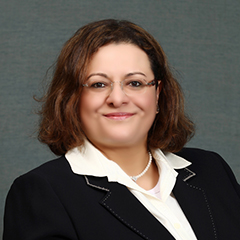
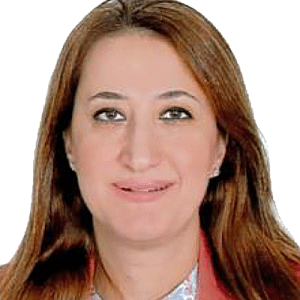
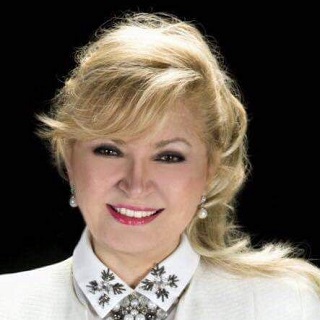
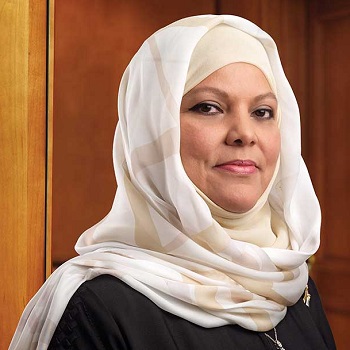
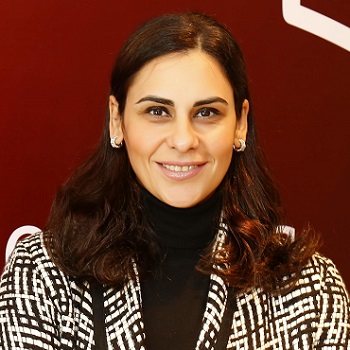
 HANIA MOHAMED SADEK '82, '90
HANIA MOHAMED SADEK '82, '90